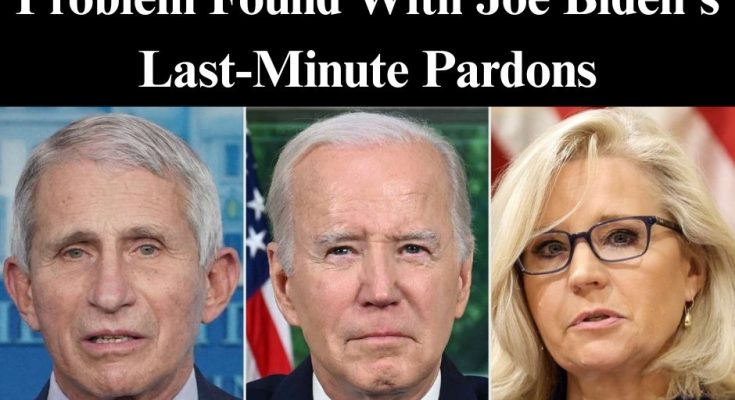Chairman James Comer (R-KY) of the House Oversight Committee announced on Friday that the committee has initiated an inquiry into former President Joe Biden’s utilization of an autopen to approve a series of contentious last-minute pardons.
The latest inquiry conducted by the Oversight Committee pertains to the autopen, and the chairman indicated that a specific staff member has been identified as its user, as stated during his address at the Republican National Lawyers Association’s policy conference in Washington, according to the Washington Examiner.
The committee is examining whether President Biden, whose cognitive health was allegedly declining in the final months of his presidency, possessed the mental capacity to authorize the use of the autopen for official documents, or if senior aides granted the pardons without his direct participation.
According to Comer, if the anticipated developments regarding the autopen investigation unfold as expected, it will establish a compelling argument concerning the pardons.
The autopen has been utilized by presidents for many years, with President Barack Obama notably employing it in 2011 to prolong the Patriot Act; however, its application for granting pardons has not been legally challenged. A 2005 opinion from the Justice Department indicated that a president could delegate signing authority to another individual.
Nevertheless, a federal appeals court determined last year that a pardon does not necessarily require a written document to be considered legally valid, as reported by the Examiner. Legal scholars suggest that certain aspects of the recent pardons, especially President Biden’s unconditional pardon for his son, Hunter Biden, may raise constitutional issues.
A general pardon could pose challenges due to the ambiguity surrounding the specific reasons for which an individual is being pardoned, as noted by Jonathan Adler, a law professor at Case Western Reserve University, in a previous statement to the outlet. In a subsequent interview with the Examiner following the conference, Comer remarked, ‘We are currently attempting to determine who, if anyone, authorized the use of the autopen for the pardons.
During a question-and-answer session with attendees, Comer affirmed that House Republicans have contemplated the potential amendment of the Constitution to prevent presidents from granting pardons to themselves or their relatives. He also mentioned a recent discussion with Senator Ted Cruz (R-TX) regarding this proposal.
This announcement comes in the wake of a mounting controversy that began in March, when President Donald Trump and his associates expressed concerns about Biden’s final clemency actions. Trump contended that numerous pardons, which were signed using an autopen, were ‘VOID, VACANT, AND OF NO FURTHER FORCE OR EFFECT.
Included in the last-minute clemency granted by President Biden were several of his close relatives, such as his brothers James B. Biden and Francis W. Biden, sister-in-law Sara Jones Biden, sister Valerie Biden Owens, and brother-in-law John T. Owens, along with notable political figures like Dr. Anthony Fauci, retired General Mark Milley, and former Republican members of the January 6 Committee, Liz Cheney and Adam Kinzinger.
While certain legal scholars have supported the autopen as a legitimate means of executing presidential powers, detractors contend that President Biden may not possess the mental acuity necessary to authorize its application.
Concerns regarding his cognitive and physical health have escalated recently, particularly with the impending release of ‘Original Sin,’ a book by CNN’s Jake Tapper and Axios’s Alex Thompson, which claims that senior aides actively sought to obscure the severity of Biden’s cognitive decline from the public eye.
Furthermore, Biden’s pardons may have inadvertently placed a burden on the recipients, as they can no longer evade the obligation to disclose the truth. Experts indicate that this situation precludes them from invoking their Fifth Amendment rights to avoid testifying before Congress, as outlined in a recent report.
Additionally, should they provide false testimony to Congress, their pardons would not shield them from prosecution for that offense. Journalist Matt Taibbi remarked in a recent interview, ‘The issue with these pardons is that they are a misstep. If you wish to understand the situation, they have simply made it significantly easier for us to uncover the truth.



